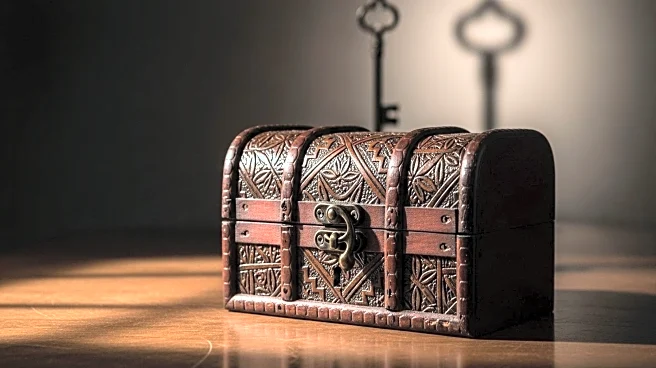What's Happening?
Recent research published in the British Journal of Psychology explores the connection between morbid curiosity and belief in conspiracy theories. The study involved three separate investigations, each examining different aspects of this relationship. Participants were assessed using the morbid curiosity scale and the generic conspiracist beliefs scale. Findings indicate that individuals with higher levels of morbid curiosity are more likely to believe in conspiracy theories. The research suggests that morbid curiosity, defined as a heightened interest in threatening or dangerous situations, can lead individuals to perceive conspiracy theories as more threatening and to seek out such explanations for events. The study highlights the role of morbid curiosity in shaping perceptions of threats and influencing the attraction to conspiracy theories.
Why It's Important?
Understanding the link between morbid curiosity and conspiracy theory beliefs is significant for several reasons. It sheds light on how psychological traits can influence perceptions of reality and contribute to the spread of misinformation. This connection may have implications for public policy and education, as addressing the underlying psychological factors could help mitigate the impact of conspiracy theories on society. Additionally, the research highlights the importance of considering psychological traits in the development of strategies to counteract misinformation and promote critical thinking. By recognizing the role of morbid curiosity, stakeholders can better understand the motivations behind conspiracy theory beliefs and develop more effective interventions.
What's Next?
Future research may focus on exploring interventions that can reduce the influence of morbid curiosity on conspiracy theory beliefs. This could involve developing educational programs that promote critical thinking and skepticism, as well as strategies to help individuals recognize and manage their curiosity about threatening situations. Additionally, further studies could investigate the role of other psychological traits in shaping beliefs and perceptions, providing a more comprehensive understanding of the factors that contribute to the spread of misinformation. Policymakers and educators may also consider incorporating findings from this research into efforts to combat conspiracy theories and promote informed decision-making.
Beyond the Headlines
The study's findings suggest that morbid curiosity may not be inherently negative, as it can drive individuals to seek out information and understand potential threats. However, when combined with conspiracy theories, it can create a feedback loop that reinforces anxiety and fear. This highlights the need for a balanced approach to curiosity, where individuals are encouraged to explore and learn while remaining critical of the sources and validity of the information they encounter. The research also underscores the importance of fostering environments that support healthy curiosity and critical thinking, which can help individuals navigate complex and uncertain situations.








